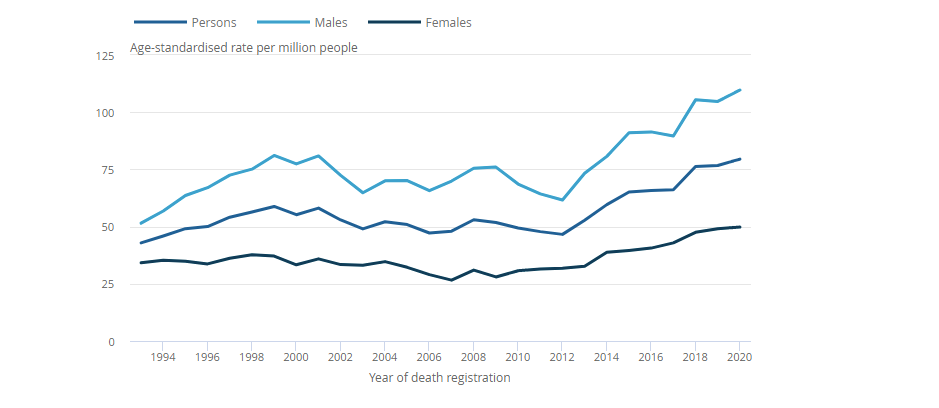Nick George, Third Year, History
The number of drug-related deaths recorded in Bristol in 2020 was the highest since records began. And it is up nearly 40 per cent since 2001. Clearly, drug misuse is an issue we need to tackle.
When drug dealers are taking out student loans to enrol at universities to supply youth drug demand (as the BBC reported), there is clearly a significant drugs problem at universities. But how endemic is Bristol University’s drug culture?
An anonymous Epigram survey of nearly 300 students offered a rather disturbing conclusion. It revealed that 77 per cent of Bristol students have taken illegal drugs for recreational purposes and that 89 per cent of those who took drugs did so while at the University. This survey also revealed that 26 per cent of students had felt pressured into taking drugs.
Most students think taking illegal drugs causes problems for users as well as society and ... https://t.co/g1WqjHBPTn pic.twitter.com/6PBHtb3Ml6
— Higher Education Policy Institute (@HEPI_news) June 11, 2018
These are clearly harrowing figures which require a rational and assertive response from Bristol University. What should this approach be? How should universities react?
Perhaps a clear indication of the polarising nature of attitudes towards drug consumption is the fact that there is indeed no consensus in response to these questions. Newcastle University decided that instead of expelling those in possession of illegal substances, first-offenders would be interviewed and have their eviction suspended on the condition that no further offences are committed.
We need to understand the repercussions of so called 'polite drug use'
Equally, those caught possessing drugs are offered counselling. Zoe Carrer, founder of the Newcastle chapter of Students for Sensible Drug Policy (SSDP) championed this approach claiming that ‘Vulnerable students who were kicked out of their accommodation were just put at more risk of harm, continuing the cycle of drug dealing and use.’
Taking a different approach, the University of Buckingham has instead become the first university in the country to bring in a zero-tolerance, drug-free policy forcing students to sign a contract to abstain from drug use on campus.

While Carrer is right to contend that strict measures towards drug consumption do little to tackle problems of addiction, the fact that 26 per cent of students have felt pressured into taking drugs proves that harm reduction policies would be rather ineffective at Bristol University.
In common parlance, lenient drug policy would be mere fiddling while Rome burns. Instead, increased police patrols and instant expulsion for those possessing illegal substances would, as it has at the University of Buckingham, according to Sir Anthony Seldon, vice-chancellor, ‘Improve students’ well-being’.
Certainly, Seldon is apt to suggest a correlation between deteriorating mental health and drug use. In fact, in 2015, an estimated 17.9 per cent of adults aged 18 and older experienced some form of mental illness with 29 per cent of these adults possessing a substance use disorder.
This statistic seems to indicate that illegal drugs play at least some part in contributing to mental health problems among young people. Interestingly, the Epigram’s survey on drug use corroborated this with one respondent claiming that ‘I wish I'd known about the depression that comedowns could trigger’.
Perhaps then it is no surprise with the current mental health crisis at universities that most students would like universities to ‘Take a stronger line’ on repeated drug use. In fact, a study, from the Higher Education Policy institute suggested that 62 per cent want their university to take repeated drug use among students more seriously.
While the physical and mental health preservation of Bristol University’s cohort should be a defining motivation for a tougher stance towards drug use, there is no denying the moral element of this contention. Peter Hitchens summarised this argument, declaring that ‘Drug-taking is the purest form of self-indulgence’, for it severs the link between hard work and reward, making ‘Deferred gratification appear a waste of time and a foolish rejection of readily available delight’.
Bristol University could do more to educate its students
Perhaps an even more salient argument for a strict drug policy are the negative externalities on the poorest in society. Sean Bailey aptly summed up this phenomenon declaring that ‘When people buy drugs, they are funding the criminals who traffic vulnerable kids and unleash mayhem on our streets’.
Certainly, the stereotypical Bristol student who reads The Tab and lectures his peers on the benefits of turning his aga off on the weekend needs to understand the repercussions of so called ‘polite drug use’.
Perhaps, Bristol University could do more to educate its students about the negative impacts of drug consumption on the poorest in society. And those strong willed 23 per cent who abstained from illegal drugs should continue to highlight the ‘wokish’ hypocrisy of their peers.
It is clear that despite a growing movement towards decriminalisation and harm reduction policies, a tougher approach towards drug use is required to prevent the production of a more immoral, hypocritical and anxious student population.
Featured image: Marcus Spisker
What are your thoughts on the latest government figures? Let us know!









